Brunei, a small Southeast Asian country, is taking strides towards a sustainable future by embracing green building initiatives. Green building refers to the practice of constructing structures that use environmentally friendly materials and technologies to minimize their impact on the environment. Through the implementation of these initiatives, Brunei aims to promote sustainability, reduce carbon emissions, and create healthier living environments.
Exploring Green Building Initiatives in Brunei
One of the key green building initiatives in Brunei is the adoption of sustainable construction materials. This involves the use of materials that are sourced responsibly, renewable, and have a minimal ecological footprint. Brunei is focusing on locally available materials like bamboo and recycled materials to reduce the carbon emissions associated with transportation.
Additionally, Brunei is exploring innovative technologies for energy efficiency in buildings. This includes the use of solar panels, energy-efficient lighting systems, and smart building management systems. By harnessing the abundant sunlight in Brunei, solar panels can generate clean energy, reducing the reliance on fossil fuels and lowering carbon emissions. Here you can learn about some of Brunei’s top green buildings.
Another aspect of green building initiatives in Brunei is the emphasis on water conservation and management. Brunei intends to implement efficient water-saving fixtures, rainwater harvesting systems, and wastewater treatment plants to reduce water consumption and improve water quality. These measures not only contribute to sustainability but also help address the challenges of water scarcity in Brunei.
Furthermore, Brunei is focusing on incorporating green spaces within buildings and urban areas. The integration of vertical gardens, rooftop gardens, and urban parks helps improve air quality, provide a natural habitat for biodiversity, and enhance residents’ overall well-being. These green spaces act as a buffer against urban heat islands, creating a more comfortable living environment for the community.
Education and awareness play a vital role in driving green building initiatives in Brunei. The government is investing in educational programs that promote sustainable practices and encourage individuals to adopt green building principles. By creating a holistic understanding of the benefits of environmentally friendly buildings, Brunei aims to create a shift in mindset towards a more sustainable future.
Key Takeaways:
- Green building initiatives in Brunei aim to promote sustainability, reduce carbon emissions, and create healthier living environments.
- Sustainable construction materials, renewable energy sources, water conservation measures, and green spaces are key aspects of Brunei’s green building initiatives.
- Educational programs are crucial for fostering a culture of sustainability and promoting green building practices in Brunei.
Incorporation of Renewable Energy Sources
One notable green building initiative in Brunei is the incorporation of renewable energy sources. The country is moving towards a more sustainable future by implementing solar panels, wind turbines, and hydropower systems in buildings to reduce reliance on fossil fuels and promote energy efficiency.
Renewable energy sources offer numerous benefits, including the reduction of greenhouse gas emissions, sustainability, cost competitiveness, job creation, and economic growth. One of the main advantages is the reduction of carbon dioxide emissions. Renewable energy sources do not produce carbon dioxide when generating electricity, which helps to curb the harmful effects of climate change and improve air quality. Moreover, using renewable energy sources helps to promote sustainability and reliability, as sunlight, wind, and flowing water are all replenishable resources.
As the cost of renewable energy technologies has become more competitive with conventional energy sources, it has become more feasible for individuals, businesses, and governments to incorporate renewable energy sources into their energy mix. The renewable energy sector has seen significant job creation, with opportunities in manufacturing, installation, and maintenance of renewable energy systems. This can provide new employment opportunities and boost local economies.
However, renewable energy sources do have their challenges. One of the main challenges is the intermittency of renewable energy production. Unlike fossil fuel power plants that can operate continuously, renewable energy sources are dependent on weather conditions. This means there may be periods of time when the electricity generated from renewable sources may be insufficient to meet the demand. To address this issue, energy storage technologies, such as batteries, are being developed to store excess renewable energy for times of lower production. Additionally, improvements in grid infrastructure and smart grid technologies can help to integrate renewable energy sources more effectively into the existing energy system.
In conclusion, the incorporation of renewable energy sources offers a sustainable and clean alternative to traditional energy sources, and Brunei is making strides towards a more energy-efficient and sustainable future. While challenges remain, advancements in technology and infrastructure are paving the way for a future where renewable energy plays a central role in meeting our energy needs. This transition towards a cleaner and more sustainable energy system is vital for a greener and healthier planet.
Use of Sustainable Materials
Furthermore, Brunei is promoting the use of sustainable materials in construction projects. The construction industry is notorious for its environmental impacts, such as excessive waste generation and over-reliance on non-renewable resources. However, the use of sustainable materials like bamboo and recycled steel can help to reduce these negative impacts and promote a more sustainable future.
Bamboo is a popular sustainable material used in construction due to its fast growth rate and natural strength. It is also a renewable resource, making it a greener alternative to traditional materials like wood. In addition to its sustainable properties, bamboo is also easy to work with and can be used in a variety of construction projects.
Recycled steel is another sustainable material used in construction, which minimizes the reliance on non-renewable resources and helps to reduce waste generation. By using recycled steel, the construction industry can also contribute to reducing carbon emissions, as the production of steel from recycled materials requires less energy than producing steel from raw materials.
The use of reclaimed wood is also gaining popularity in Brunei, as it offers a more sustainable alternative to traditional wood. Reclaimed wood is sourced from old buildings, bridges, and other structures, and can be used in construction projects without contributing to deforestation or other environmental impacts.
The use of sustainable materials in construction not only helps to reduce negative environmental impacts but also offers the same level of durability and functionality as traditional materials. By promoting the use of sustainable materials, Brunei is taking a step towards a more sustainable future and encouraging the construction industry to adopt more eco-friendly practices.
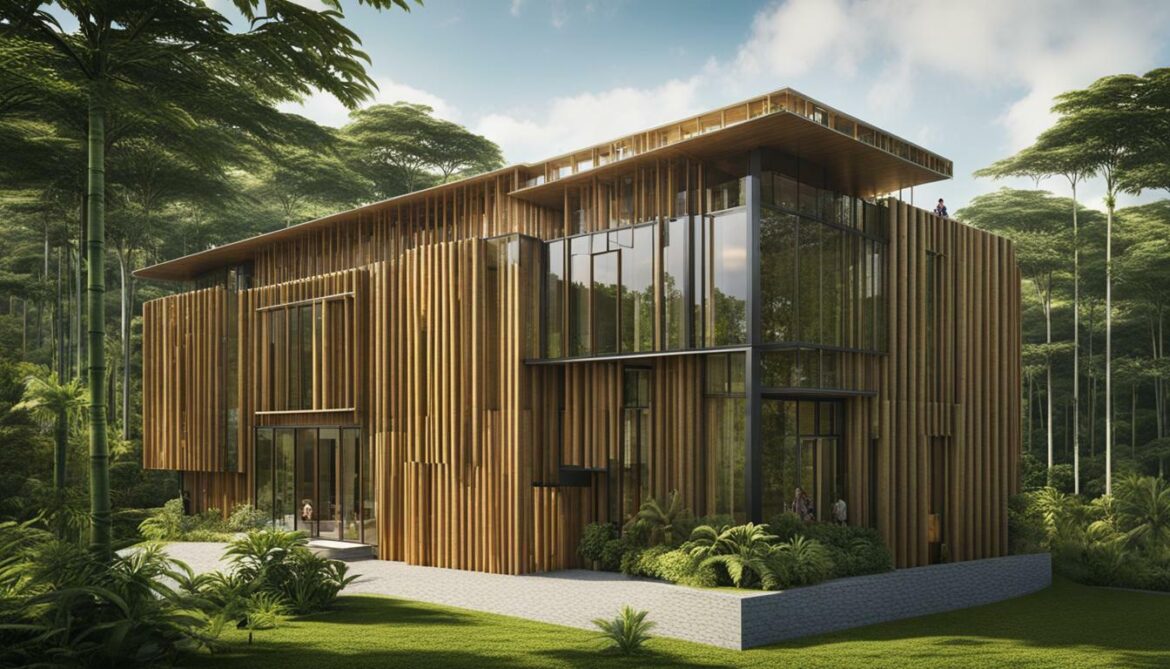
Water Conservation Measures
Water conservation is another crucial aspect of green building initiatives in Brunei. With water being a finite resource, it is imperative to promote sustainable water usage practices. Here are ten effective water conservation measures that can be implemented:
- Fixing Leaks: One of the most basic yet important water conservation measures is fixing leaks. Regularly inspect and repair any leaks to prevent unnecessary water loss.
- Installing Water-Saving Devices: Installing water-saving devices in households and businesses can greatly reduce water consumption. These include low-flow showerheads, faucet aerators, and dual-flush toilets. These devices limit the flow of water while maintaining efficiency.
- Collecting Rainwater: Another effective water conservation measure is collecting rainwater. Installing rain barrels or cisterns can capture rainwater, which can then be used for activities like watering plants and cleaning.
- Using Greywater Systems: Recycling greywater, which is water from activities such as dishwashing, laundry, and bathing, can significantly reduce water usage. Greywater can be treated and reused for gardening or flushing toilets after proper filtration.
- Practising Water-Efficient Landscaping: Adopting water-efficient landscaping techniques is essential for conserving water outdoors. This includes planting native or drought-tolerant plants, using mulch to retain moisture, and watering plants during early mornings or late evenings to minimize evaporation.
- Irrigation Management: Optimizing irrigation practices is crucial for water conservation in agriculture. Implementing efficient irrigation systems like drip irrigation and using sensors to measure soil moisture can help reduce water wastage.
- Promoting Water Education and Awareness: Educating communities about the importance of water conservation and providing tips for efficient water use can significantly contribute to reducing water consumption. Awareness campaigns and educational programs can empower individuals to take action.
- Implementing Water Pricing Policies: Setting up progressive water pricing policies can encourage responsible water usage. Gradually increasing water tariffs as usage increases can discourage excessive water consumption and promote conservation.
- Industrial Water Management: Industries should adopt water management practices to reduce water waste and enhance efficiency. Technologies like water recycling, process optimization, and leak detection systems can help industries minimize their water footprint.
- Government Regulations: Governments can play a crucial role in promoting water conservation. Establishing and enforcing water conservation regulations, setting water use restrictions during drought periods, and providing incentives for water-saving initiatives can drive significant conservation efforts.

Investing in water conservation measures is not only beneficial for the environment but also for long-term water security. By implementing these strategies, individuals, businesses, and governments can collectively work towards a sustainable future with sufficient water resources.
Emphasis on Indoor Air Quality
An important aspect of green building initiatives in Brunei is the emphasis on indoor air quality (IAQ). With many people spending the majority of their time indoors, it is crucial to prioritize and improve the air quality in our homes, offices, and public spaces to maintain good health and well-being.
Studies have shown that poor IAQ can lead to various health problems, including respiratory issues, allergies, and even cardiovascular diseases. This has prompted governments, organizations, and individuals to place greater emphasis on ensuring a clean and healthy indoor environment.
Ventilation and Air Purification
One of the key factors influencing IAQ is ventilation. Proper ventilation helps to remove pollutants, such as dust, allergens, and volatile organic compounds (VOCs), from the air and replace them with fresh outdoor air. Regularly opening windows, using exhaust fans, and maintaining air conditioning systems are simple yet effective ways to enhance indoor air ventilation.
Another important aspect of improving IAQ is the use of air purifiers. These devices remove contaminants from the air, including dust, pollen, pet dander, and smoke particles. HEPA (high-efficiency particulate air) filters are commonly used in air purifiers as they can capture particles as small as 0.3 microns, ensuring cleaner air in indoor environments.
Controlling Moisture and Reducing Chemical Use
Controlling moisture levels is another critical factor when it comes to IAQ. High humidity can promote the growth of mold and mildew, leading to respiratory issues and allergies. Using dehumidifiers, repairing leaks promptly, and ensuring proper ventilation in areas prone to moisture, such as bathrooms and kitchens, are essential for maintaining optimal indoor air quality.
Furthermore, reducing the use of chemical-based products, such as cleaning agents and pesticides, can significantly improve IAQ. These products release harmful VOCs into the air, which can cause various health problems. Choosing environmentally friendly and non-toxic alternatives is a better option for both our health and the environment.
Maintenance and Education
Regular cleaning and maintenance of HVAC systems, including air filters and air ducts, are also vital in ensuring good IAQ. Dirty filters and ducts can harbor pollutants and circulate them throughout the indoor space, compromising air quality. Therefore, it is crucial to clean and replace filters regularly and have air ducts professionally cleaned when necessary.
Lastly, education and awareness play a crucial role in emphasizing the importance of indoor air quality. The more we understand the impact of poor IAQ on our health, the more motivated we become to take action and make changes to improve the air we breathe.
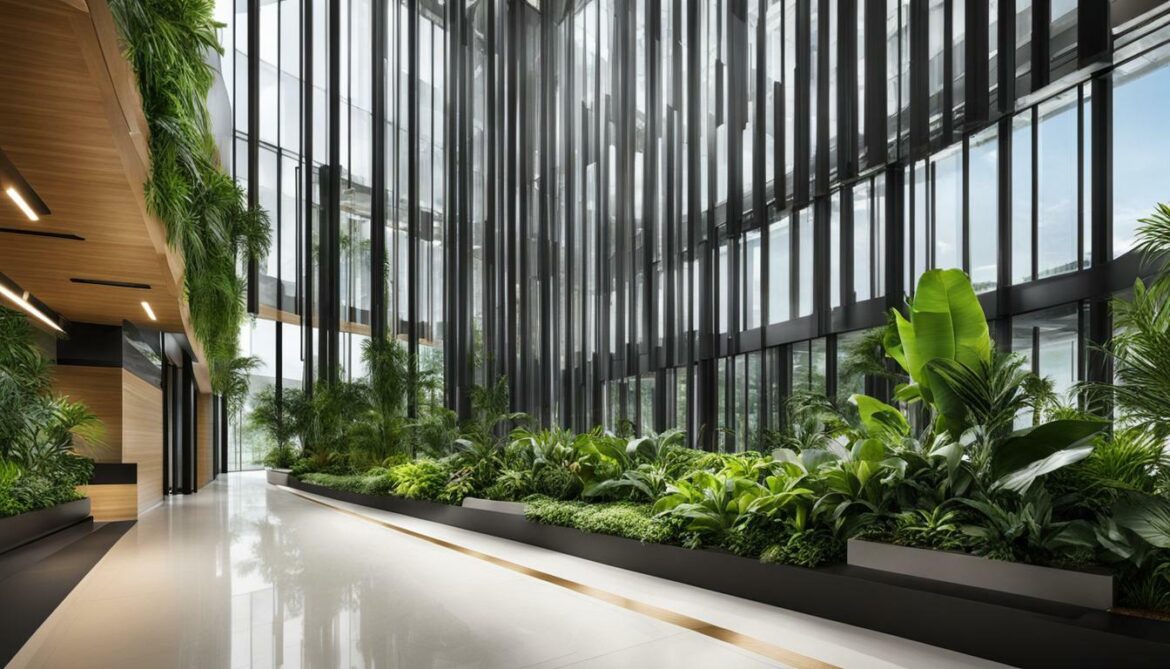
In conclusion, indoor air quality is receiving the attention it deserves as it directly affects our health and well-being. By focusing on aspects such as ventilation, air purification, moisture control, reducing chemical use, HVAC maintenance, and increasing awareness, we can collectively create healthier indoor environments for ourselves and future generations.
Sustainable Site Development
In addition to these specific initiatives, Brunei is also prioritizing sustainable site development. This process aims to create environmentally-friendly sites by implementing strategies that minimize negative impacts on the natural surroundings. It involves carefully planning and designing projects to ensure the efficient use of resources, promote biodiversity, and reduce pollution.
One key aspect of sustainable site development is proper site selection. It is important to choose locations that are already developed or have minimal impact on sensitive ecosystems. This helps to preserve natural habitats and ecosystems while avoiding irreversible damage to the environment.
Another important consideration in sustainable site development is the reduction of stormwater runoff. By implementing techniques such as rainwater harvesting and the use of permeable surfaces, developers can help to mitigate the negative effects of urbanization on water quality and quantity.
Additionally, sustainable site development prioritizes the protection and conservation of biodiversity. This can be achieved through the preservation of existing vegetation and the incorporation of green spaces and wildlife corridors to encourage the movement of animals.
Furthermore, sustainable site development aims to minimize energy consumption and promote renewable energy sources. This can be achieved through the use of energy-efficient buildings, solar panels, and the incorporation of natural lighting and ventilation systems.
Lastly, sustainable site development also focuses on waste management and recycling. By implementing strategies to reduce waste generation and promoting the use of recycled materials, developers can minimize the environmental footprint of construction projects.
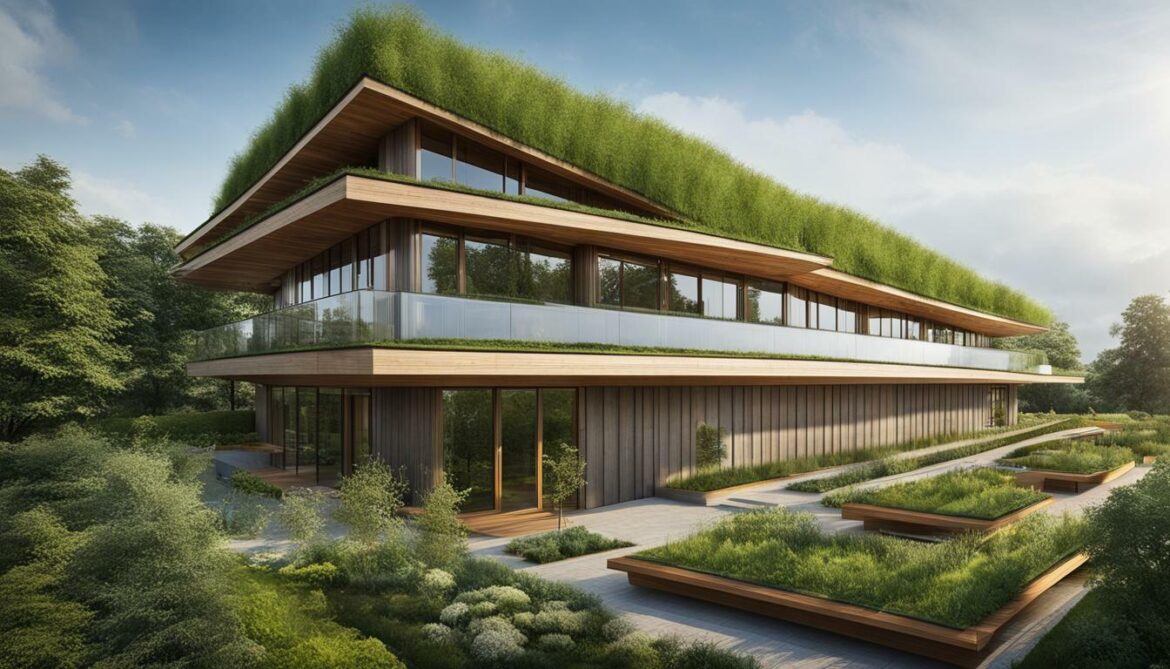
In conclusion, sustainable site development is a holistic approach that considers the environmental, social, and economic impacts of development projects. Through careful planning and implementation of various strategies, developers can create sites that are environmentally-friendly and contribute positively to the surrounding ecosystem.
Education and Awareness
Moreover, Brunei is actively promoting education and awareness about green building practices. The government has implemented various measures to encourage sustainable construction education, such as offering green building certification programs and providing training workshops. These programs aim to equip professionals in the construction industry with the knowledge and skills needed to implement sustainable practices in their projects. Additionally, the public is also encouraged to participate in sustainable construction education by attending workshops and seminars.
Green building certification Brunei is an important aspect of sustainable construction education. It provides industry professionals with the necessary knowledge and competencies to design and construct environmentally responsible buildings. The Building Control Division of the Ministry of Development in Brunei offers a Green Building Assessment (GBA) certification system, which evaluates buildings based on their sustainability features. The certification system aims to promote the use of sustainable building practices and encourages developers and building owners to adopt more environmentally responsible building designs.
In addition to certification programs, sustainable construction education Brunei also includes awareness campaigns. The government has launched various campaigns to educate the public about the importance of sustainable construction practices and the benefits of green buildings. These campaigns aim to promote a culture of sustainability and encourage individuals to adopt eco-friendly habits in their daily lives.
Overall, educating and raising awareness about green building practices is crucial in promoting sustainability in the construction industry. By offering certification programs and awareness campaigns, Brunei is taking a significant step towards achieving its sustainability goals. As a result, the country is well-positioned to continue to implement sustainable practices in the future, contributing to a greener and more sustainable built environment.
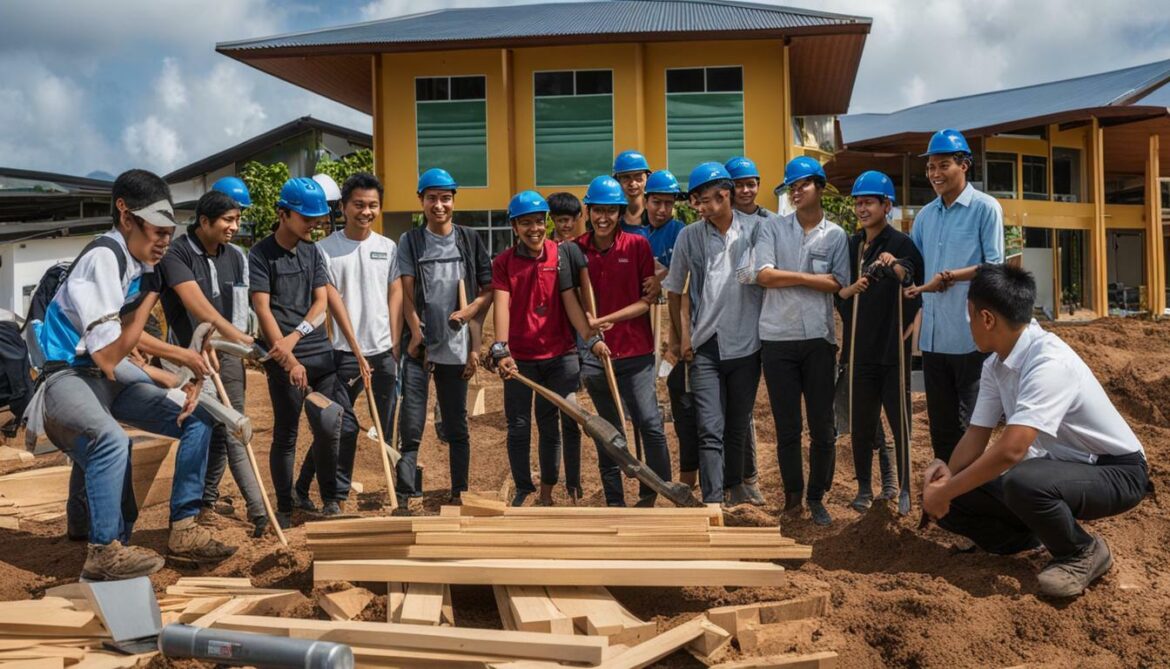
Incorporation of Renewable Energy Sources
Green building initiatives in Brunei offer not only environmental benefits but also economic and social advantages. Incorporating renewable energy sources in building designs, such as solar panels, is a prime example of this. By reducing reliance on non-renewable fossil fuels, these energy-efficient buildings help to mitigate climate change and promote sustainable development. Furthermore, the use of renewable energy sources also contributes to the country’s economic growth by creating employment opportunities in the renewable energy sector.
Aside from the environmental and economic benefits, the implementation of renewable energy sources in buildings also leads to improved energy security. By reducing dependency on fossil fuels, Brunei can diversify its energy sources and become more self-sufficient in meeting its energy needs. This, in turn, can lead to a more stable energy supply, reducing the risk of energy-related disruptions.
Moreover, incorporating renewable energy sources in buildings is a way to future-proof investments. With the global trend towards renewable energy, buildings that incorporate these technologies are deemed to be more valuable and resilient in the long run. This means that the incorporation of renewable energy sources not only provides immediate benefits but also enhances the long-term value of the building.
In summary, the incorporation of renewable energy sources in building designs in Brunei offers multiple benefits, including environmental, economic, and social advantages. By promoting energy efficiency and security, as well as future-proofing investments, Brunei is moving towards a more sustainable future.
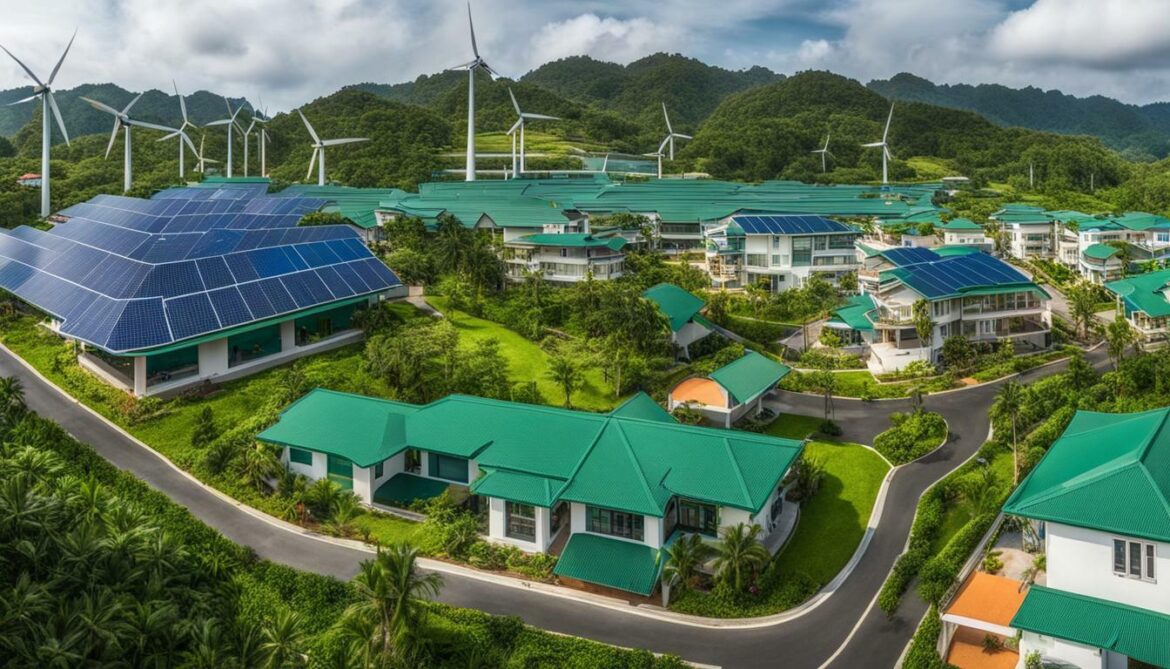
Future Prospects and Challenges
Looking towards the future, green building in Brunei holds immense potential, but it also faces certain challenges. As we move forward, it is imperative to navigate through these hurdles with resilience and innovative strategies.
One of the most significant prospects for the future is technological advancement. The rapid pace of digital transformation opens up a plethora of opportunities across various sectors. The integration of artificial intelligence, Internet of Things (IoT), and automation is set to revolutionize industries, creating new job roles and transforming existing ones. This presents a promising future for individuals to upskill and adapt to the changing landscape.
However, with these prospects come challenges. One major concern is the potential displacement of jobs due to automation. As technology advances, certain roles may become obsolete, leaving countless individuals unemployed. The challenge lies in ensuring a smooth transition between traditional job roles and new ones, by offering retraining and reskilling programs. This will be crucial in mitigating the impact of automation on the workforce.
Additionally, another challenge in the future is climate change and its implications. The need for sustainable practices is becoming increasingly urgent. The future holds the responsibility of addressing environmental issues such as rising global temperatures, extreme weather events, and dwindling natural resources. This requires innovative solutions and a collective effort from individuals, businesses, and governments to mitigate the impacts of climate change and work towards a sustainable future.
Furthermore, the future also brings geopolitical challenges. In an increasingly interconnected world, political tensions and conflicts can disrupt global stability. The rise of populism and protectionism in some regions adds complexity to global trade. Negotiating and maintaining diplomatic relationships between nations will be crucial in addressing these challenges and fostering global cooperation.
The future holds both prospects and challenges. Technological advancement, climate change, and geopolitical tensions are some of the key areas that require attention. By embracing innovation, fostering sustainable practices, and promoting global cooperation, we can work towards shaping a future that offers opportunities for growth and addresses the challenges we face.
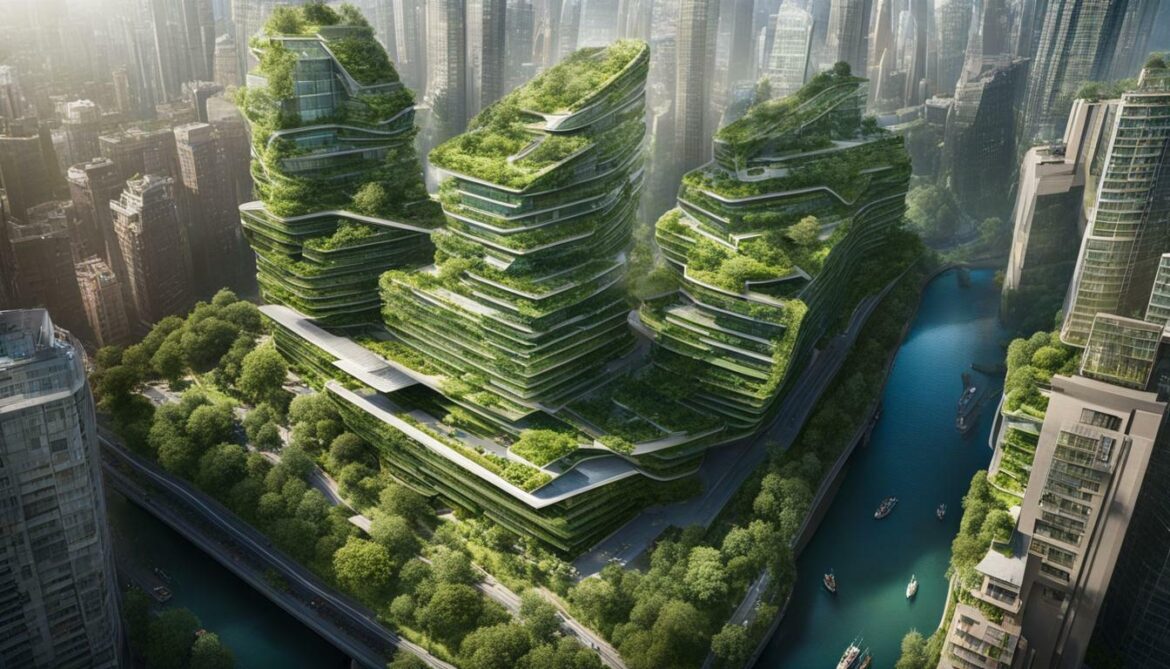
Conclusion
In conclusion, Brunei is making significant strides towards a sustainable future through its green building initiatives. The use of renewable energy sources such as solar panels, eco-friendly construction practices, sustainable materials like bamboo and recycled materials, water conservation measures, emphasis on indoor air quality, and sustainable site development are just a few of the factors contributing to this progress.
Moreover, the country has been actively promoting education and awareness about sustainable construction, with initiatives such as green building certification programs and training programs. These efforts are crucial in creating a more sustainable future for Brunei, where economic and social benefits can be felt by all.
However, there are still challenges that need to be addressed for continued progress and implementation. These challenges include the need for more research and development in green building materials and technologies, as well as addressing issues related to funding and policy support.
Despite these challenges, Brunei’s commitment to sustainable building practices and a greener future is admirable. It serves as an inspiration for other countries in the region and beyond to follow in their footsteps and work towards a sustainable future.
FAQ
Q: What are green building initiatives in Brunei?
A: Green building initiatives in Brunei refer to the practices and measures implemented in construction projects to create environmentally friendly and sustainable buildings. These initiatives include the incorporation of renewable energy sources, use of sustainable materials, water conservation measures, emphasis on indoor air quality, sustainable site development, and education and awareness programs.
Q: How does Brunei incorporate renewable energy sources in buildings?
A: Brunei incorporates renewable energy sources, such as solar panels, in buildings to harness the power of the sun. These solar panels generate clean energy, reducing reliance on fossil fuels and minimizing greenhouse gas emissions. It not only benefits the environment but also reduces electricity bills for building owners.
Q: What are sustainable materials used in construction projects in Brunei?
A: Sustainable materials used in construction projects in Brunei include bamboo, recycled materials like reclaimed wood and recycled concrete. Bamboo is preferred for its rapid growth, renewability, and durability, reducing the demand for traditional building materials and helping to sequester carbon dioxide from the atmosphere. The use of recycled materials reduces waste and minimizes the extraction of raw materials.
Q: How does Brunei conserve water in buildings?
A: Brunei conserves water in buildings through various measures. Low-flow toilets and faucets are installed to significantly decrease water usage and preserve water resources. Additionally, rainwater harvesting systems are introduced to collect rainwater for non-potable uses, further reducing water consumption and conserving water resources.
Q: Why is indoor air quality important in green buildings in Brunei?
A: Indoor air quality is important in green buildings in Brunei because it affects the well-being of building occupants. Brunei focuses on using materials that do not emit harmful substances or volatile organic compounds (VOCs) in construction. Low-VOC paints, adhesives, and sealants are promoted to provide occupants with healthier indoor environments.
Q: How does Brunei prioritize sustainable site development?
A: Brunei prioritizes sustainable site development by incorporating green spaces and landscaping into building designs. This enhances biodiversity and reduces the heat island effect in urban areas. Green spaces such as gardens and rooftop plantings create natural habitats for flora and fauna while mitigating the effects of urbanization.
Q: How does Brunei promote education and awareness about green building practices?
A: Brunei promotes education and awareness about green building practices through workshops, training programs, and campaigns. The government and various organizations conduct these activities to educate the public and professionals about the benefits of sustainable construction. The aim is to encourage widespread adoption of green building practices and create a culture of sustainability within the construction industry.
Q: What are the economic and social advantages of green building initiatives in Brunei?
A: Green building initiatives in Brunei have economic and social advantages. They contribute to the economy by creating jobs in the sustainable construction sector. They also have positive impacts on public health and quality of life through the provision of healthier indoor environments. Furthermore, green buildings often have lower operating costs, leading to long-term savings for building owners.
Q: What are the future prospects and challenges of green building in Brunei?
A: The future prospects of green building in Brunei are promising as the country continues its commitment to sustainability. However, challenges such as cost considerations, lack of awareness, and the need for continuous innovation and improvement still need to be addressed for sustainable construction to become the norm.



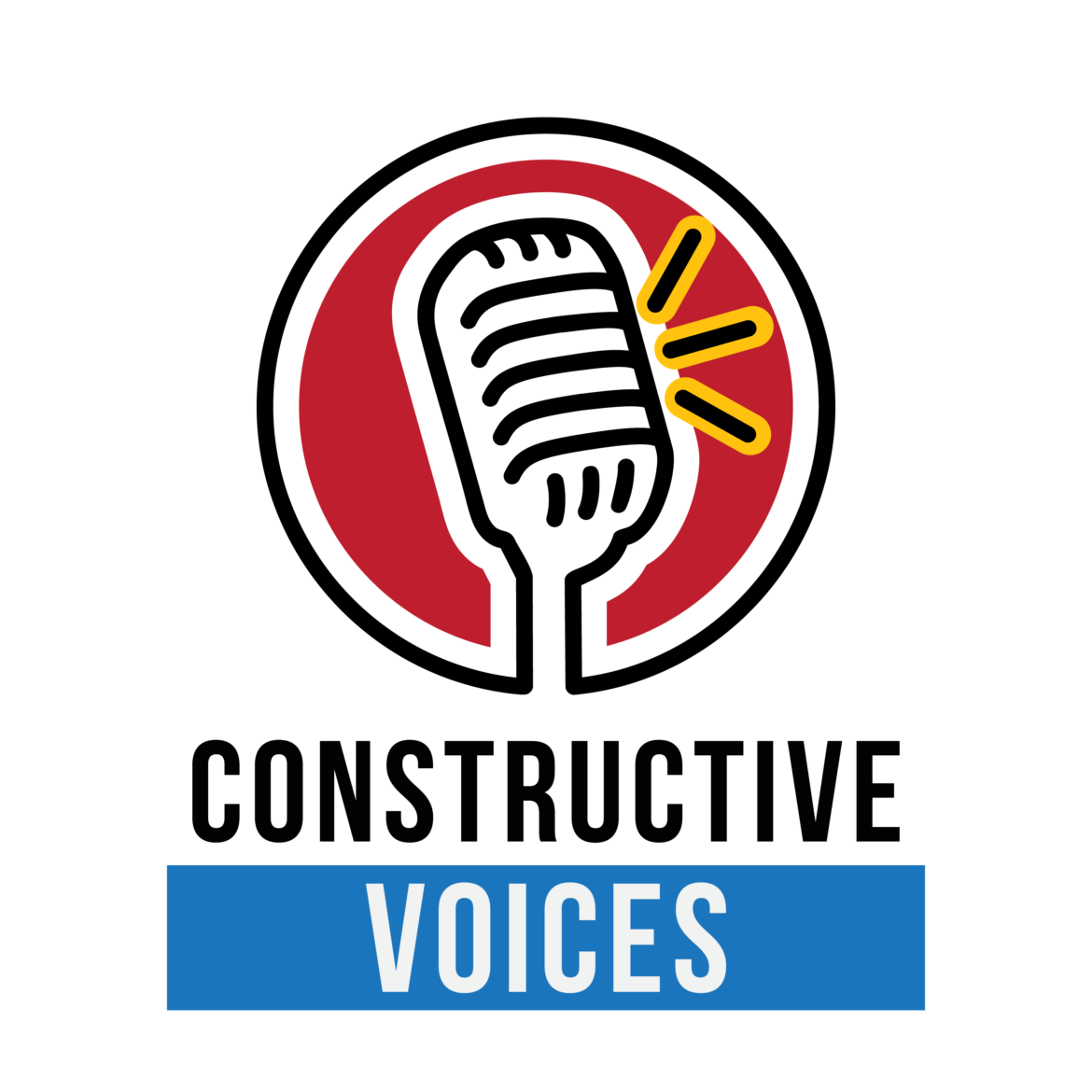


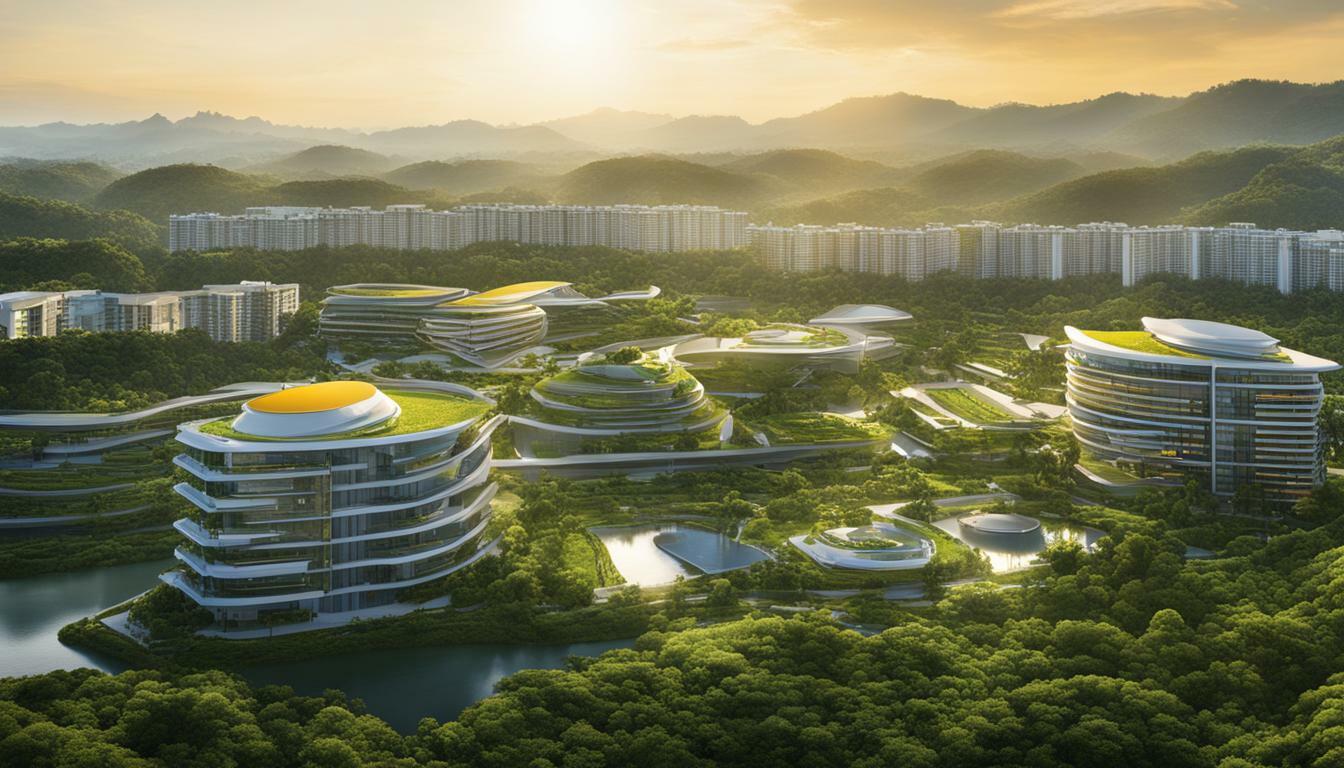







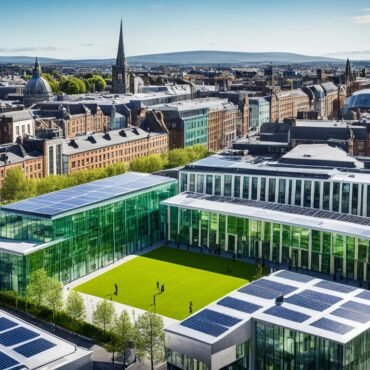
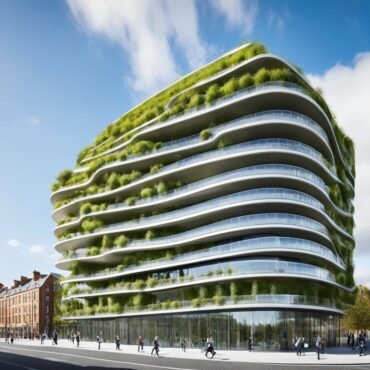




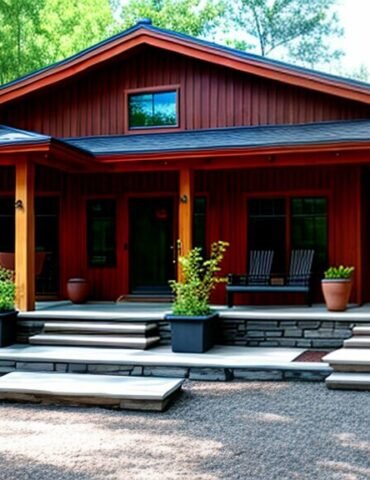

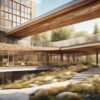
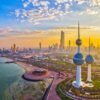

Post comments (0)